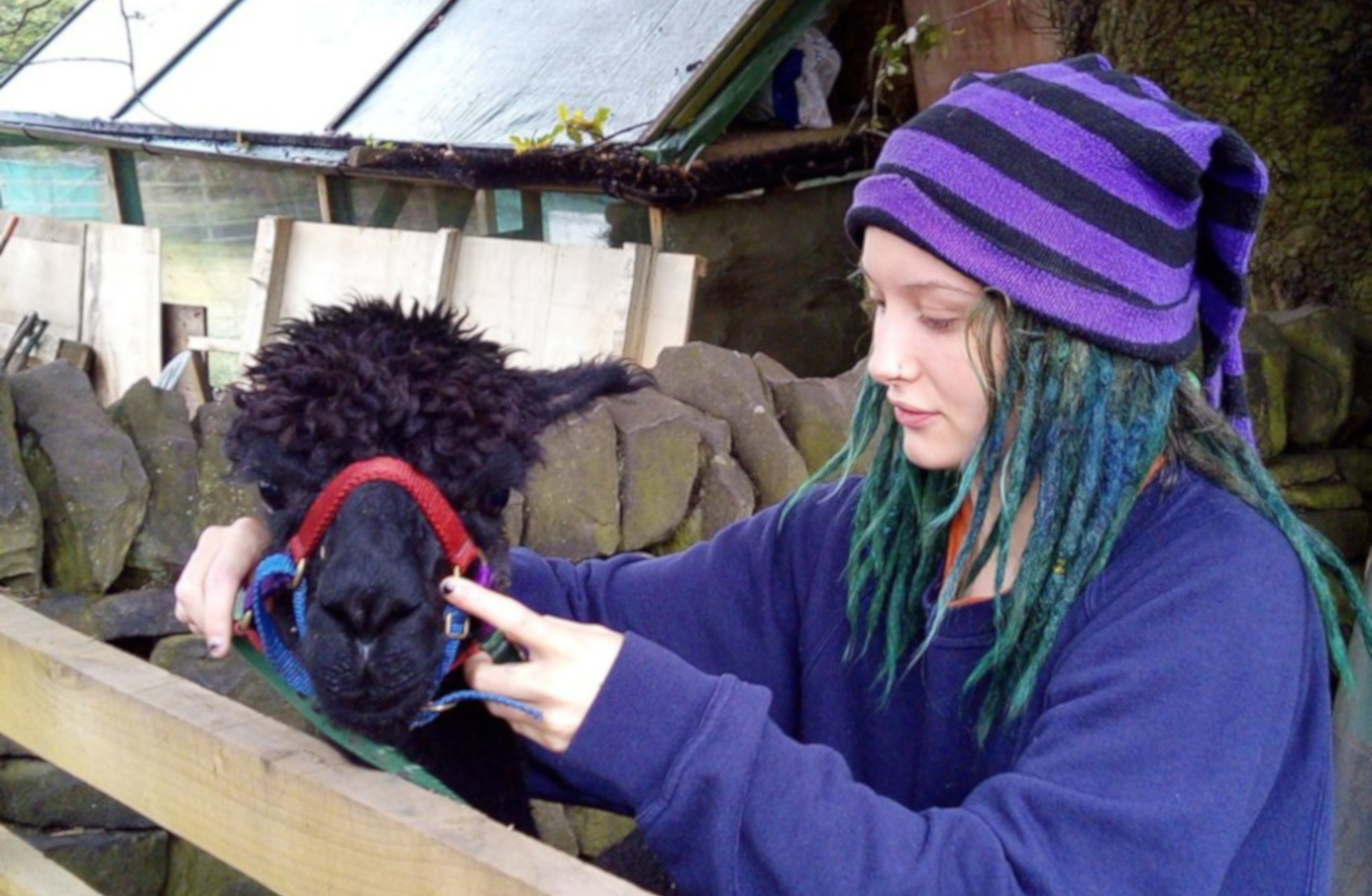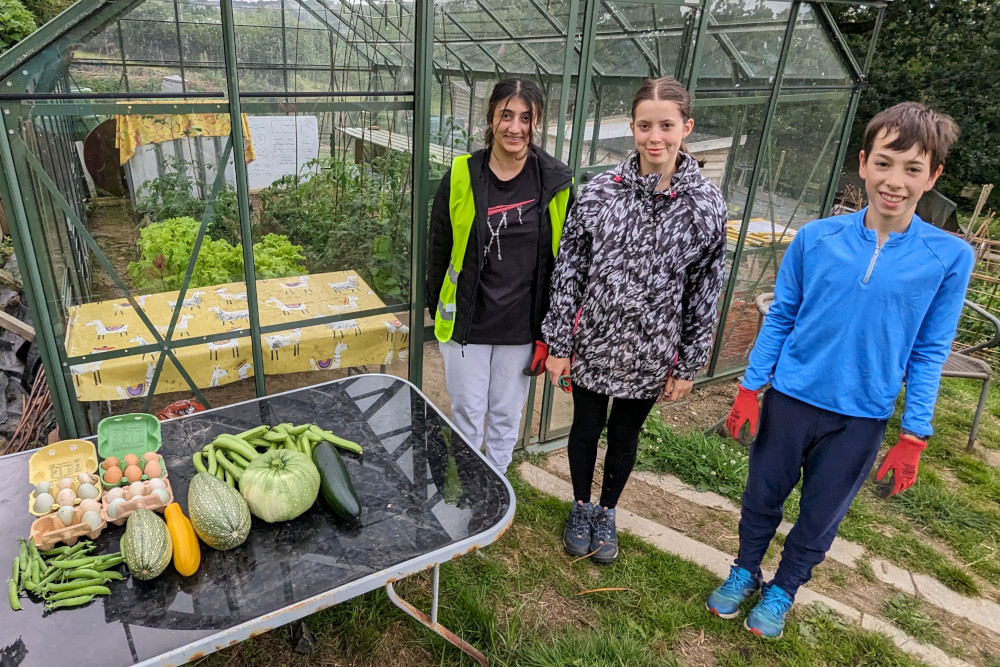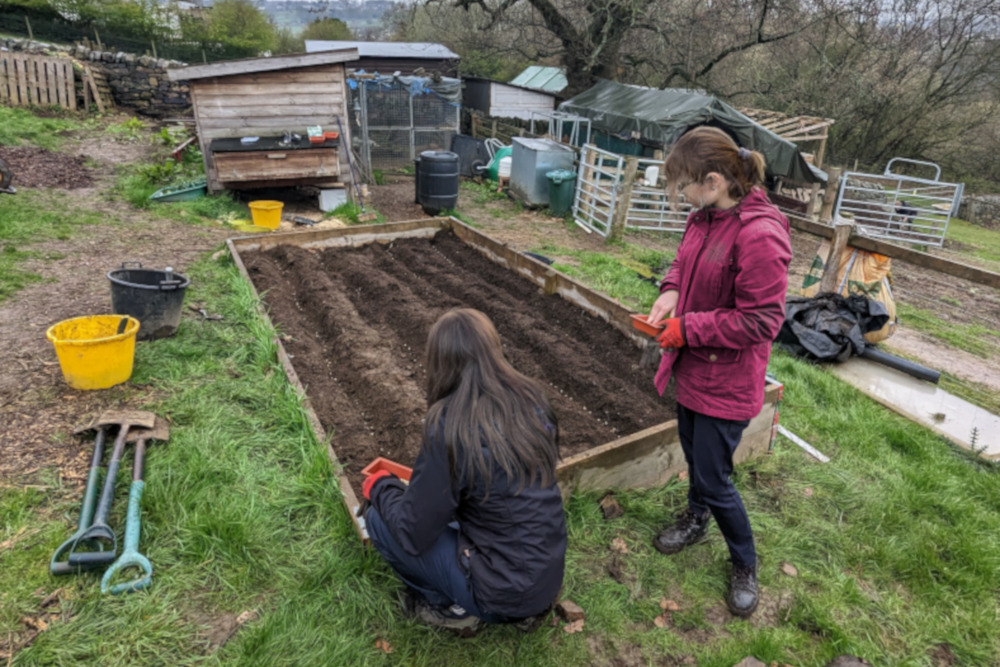Before you apply for a placement with us
Think carefully about whether a placement here will suit you. We love what we do and there are lots of opportunities to spend time with the animals and enjoy beautiful days in nature — but you can also expect to get cold, wet, and tired. We work in all weathers.
Placements are valuable for gaining experience in fields that can be hard to access, such as permaculture, horticulture, conservation, ecology, or animal care. We ask that you only apply if you have a genuine interest in these areas and are able to commit to the sessions you agree to. If you miss sessions often or stop attending without letting us know, we may offer your place to someone else.
The work involved
Our volunteering sessions run from 2–4 pm on Saturdays and Wednesdays. Usually around 8 or more volunteers work alongside 1–2 session leaders.
We have no gas, electricity, or mains water on site, but there are handwash stations with soap and clean water. You will need to bring your own drinks and snacks.
The work is physical and often muddy on our sloping, rocky site. Much of the year it is cold and wet. We have a shed where you can leave belongings and shelter from the rain, but it isn’t heated — so warm clothing and waterproofs are essential.
Although the work can be hard, everyone is encouraged to work at their own pace. We are friendly and welcoming, and we explain what we are doing and why, so you’ll learn about permaculture principles and basic animal care as you go. Tasks are done in pairs or groups and rotated if possible, so everyone gets a chance to try different things. And yes — everyone does plenty of poo scooping (luckily alpaca poo doesn’t smell much at all!).
Weekly tasks
Every week we:
-
Clear alpaca poo off meadows and paths
-
Clean out chicken and duck pens
-
Feed and check the pigs, sheep, chickens, and ducks
-
Carry food sacks, hay, straw bales, and watering cans
Animal care doesn’t take the whole session, so there are always other jobs as well — depending on what needs doing.
Seasonal work
Autumn
-
Harvesting fruit and vegetables
-
Tidying growing spaces and removing old plants
-
Preparing for winter: fixing paths, maintaining the water system
-
Lots of barrowing of old plants, gravel, and woodchip
Winter
-
Maintenance: fixing shelters, fences, vegetable beds
-
Digging ditches, spreading manure/compost
-
Renovating the compost system (brambles, nettles, building bins)
-
Cutting back trees and bushes, harvesting willow
Spring
-
Sowing, potting on, and planting out vegetables
-
Meadow care: reseeding, digging out weeds, fencing
-
Deep-cleaning all animal shelters
Summer
-
Fast-growing plants: lots of weeding and tidying
-
Preparing for and helping with shearing day
-
Preparing for our summer open day (family-friendly activities)
-
Early harvest of vegetables
Next steps
If you’ve read this and think a placement at Holly Hagg might be right for you, please get in touch with us by email. We’ll let you know about current availability and send you the application form if we have a suitable space.




